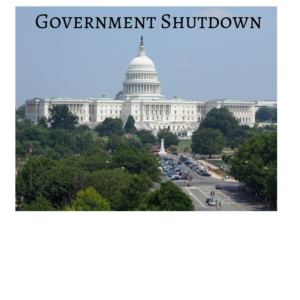 The government shutdown that began on December 21 is having a variety of local impacts to the state of Hawaii, which ranks 3rd in the nation for the number of federal jobs it has. But it is not just local federal employees who are being affected by the shutdown, but many people who are in the middle of a real estate transaction to buy or sell a home here in West Hawaii. LUVA Real Estate agents are not currently reporting missed closings, but we wanted to keep you abreast of what the potential impacts may be.
The government shutdown that began on December 21 is having a variety of local impacts to the state of Hawaii, which ranks 3rd in the nation for the number of federal jobs it has. But it is not just local federal employees who are being affected by the shutdown, but many people who are in the middle of a real estate transaction to buy or sell a home here in West Hawaii. LUVA Real Estate agents are not currently reporting missed closings, but we wanted to keep you abreast of what the potential impacts may be.
The shutdown includes all non-essential government employees and the many departments they represent. Some of these departments are directly related to the mortgage process. If you are selling a home, your buyer could directly be affected.
Furthermore, if you are buying, the process may be stalled until there is some resolution. The uncertainty resulting from the shutdown is already hitting consumer confidence hard, says Lawrence Yun, Chief Economist with the National Association of Realtors. “For ordinary Americans, the shutdown adds to economic uncertainty about their future,” Yun says. “Buying a home is a high-anxiety transaction, and by adding another complexity to it with possible delays in [the transaction], it hurts the economy and hurts consumers.”
Here are some of the ways the government shutdown, which involves an impasse over funding for President Trump’s border wall, could impact your real estate transaction. (Information from BankRate.com)
1. Fannie Mae, Freddie Mac will still process your loan (in most cases)
In general, the shutdown doesn’t impact loan processing at these agencies because they’re not funded by the government. If you’re a federal worker or contractor, though, and your lender cannot get a verbal verification of employment from your federal employer prior to loan delivery, your loan approval may be denied or delayed. Verification of employment is a key requirement to get a loan from Fannie Mae and Freddie Mac, and the agencies cannot buy loans in which a borrower’s employment — and ability to repay — hasn’t been fully vetted.
2. FHA loan closings could be delayed, but not VA loans
Historically, loans insured by the Federal Housing Administration (FHA) and U.S. Department of Veterans Affairs (VA) are not impacted by government shutdowns. With fewer staff working at FHA, however, some borrowers may see a closing delay due to increased backlog. On the other hand, VA staff who approve VA loans are paid through borrowing fees and typically aren’t impacted by a shutdown.
3. USDA loans will not be processed
The U.S. Department of Agriculture will not issue new USDA Direct Loans or Guaranteed Loans. Scheduled closings of Direct Loans are being canceled and unless your guarantee was previously issued for a Guaranteed Loan, those may or may not be closed, depending on the lender. Check with your lender immediately if you’re getting a USDA loan or had planned to use the program to buy a home; you might have to put off your purchase until the shutdown is resolved.
4. Expect delays in IRS transcript and Social Security reporting
Lenders generally have borrowers sign an IRS request for transcript of tax return (Form 4506-T) at or before closing. The IRS will not process new requests for transcripts during the shutdown. Lenders aren’t required to have the transcripts at closing and, in many cases, can add the transcripts to your loan file after closing. To process a mortgage application, lenders verify that your Social Security number is valid with the Social Security Administration. With significant delays expected in processing these requests, government-sponsored agencies have relaxed their rules to allow lenders to submit these reports prior to loan delivery rather than earlier in the loan process. If your Social Security number cannot be validated prior to this time, however, your loan could be denied.
5. Market Instability Can Occur
Markets can adjust for a short term shutdown, but the longer it goes on, the more unstable things get. This may cause mortgage interest rates to fluctuate or shoot up if this lingers past our debt ceiling date. This increase may deter buyers from buying or may increase debt to income ratios and loan approvals. If buyers aren’t buying, then demand is lowered and this would cause a drop in home values.
Crisis averted
One potentially catastrophic consequence of the shutdown has already been averted. On Dec. 28, the Federal Emergency Management Agency (FEMA) reversed its decision to halt the issuing and renewal of federal flood insurance plans, which could have disrupted up to 40,000 new home sales each month, according to the National Association of Realtors (NAR). The Department of Homeland Security, one of the government entities affected by the shutdown, oversees FEMA. The National Flood Insurance Program is now renewed through May 31, 2019.
LUVA Real Estate will keep you abreast of impacts to the West Hawaii real estate market as the shutdown continues.